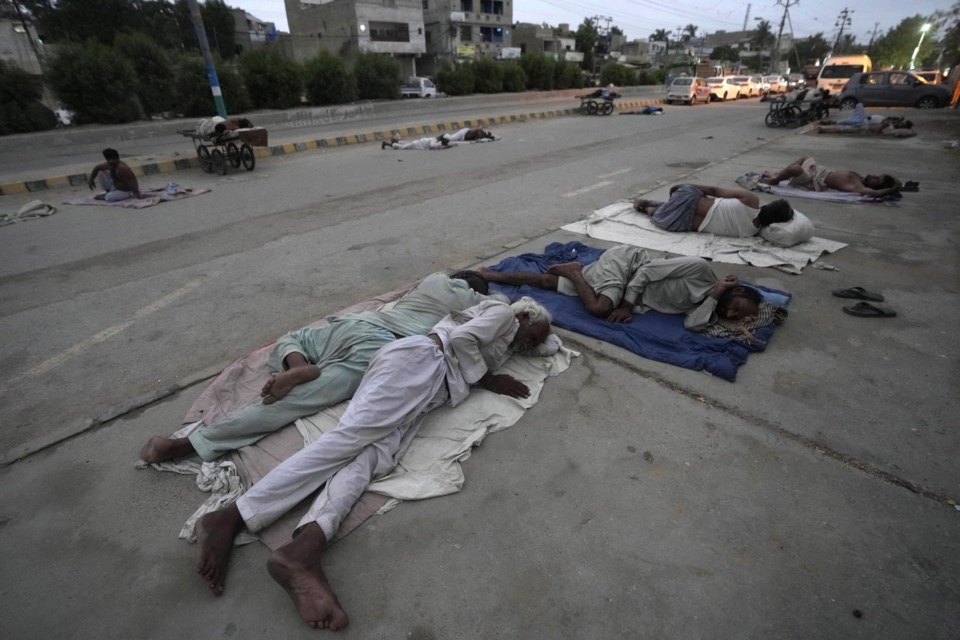ISLAMABAD (AP) — Developing resilient energy systems to power health facilities in Pakistan could avert over 175,000 deaths in the country by 2030, a new new study by the United Nations children’s agency said Friday.
It would also contribute $296 million to the country’s fragile economy over the next 20 years by reducing maternal, adult and infant mortality, UNICEF said. Conducted by the agency's Economist Impact Unit, the study comes as Pakistan is experiencing an intense heatwave that has sickened thousands of people, further burdening the country's health care system.
Temperatures in various parts of Pakistan soared as high as 49 degrees Celsius (120 degrees Fahrenheit) Friday.
Authorities were also battling forest fires, which Pakistan has been experiencing during heatwaves in recent years. Near the capital, Islamabad, a fire broke out on Thursday but officials have yet to determine whether it was caused by the high temperatures.
Plumes of smoke were seen rising from the hills around Islamabad as firefighting helicopters flew overhead to douse the flames.
Amid soaring temperatures, authorities urged people to stay indoors, hydrate and avoid unnecessary travel. Demand for power has surged because of the high temperatures, putting a strain on existing electricity sources.
UNICEF said resilient energy refers to reliable, flexible, accessible and quality power supplies that can withstand and recover quickly from unanticipated shocks, such as power outages and floods.
It said more resilient energy supplies for schools would reduce dropout rates and improve children’s learning so they can earn more in the future.
“Children depend on schools, health centers and safe drinking water for their survival, yet these facilities often don’t have the electricity supply to function optimally. As the current heatwave grips the country, electricity needs have skyrocketed, leading to shortfalls that can endanger children’s health,” said Abdullah Fadil, the UNICEF representative in Pakistan.
UNICEF said 3.5 billion people live without reliable power worldwide.
It said climate change is contributing to the disruption of generation and distribution of energy in Pakistan, where floods triggered by climate-induced monsoon rains in 2022 killed 1,739 people. It said almost half of the water infrastructure, such as storage tanks, wells and supply lines, was damaged by the floods.
This year, Pakistan recorded its wettest April since 1961 with more than double the usual rainfall for the month. Heavy rains last month killed .
Daytime temperatures in May have soared as much as 8 C (14 F) above average temperatures for the month over the last 20 years, raising fears of flooding in the northwest because of glacial melting.
UNICEF said it helped restore water systems for 350,000 people in 375 locations after the 2022 floods and has also implemented several solar electrification initiatives in Pakistan.
“Pakistan has an abundance of renewable resources and by investing in them we are tapping into a goldmine to help children,” Fadil said. "We need the private sector to play a bigger role as public sector resources will not be enough. This is everybody’s business.”
Muir Ahmed, The Associated Press




